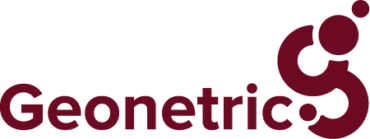It’s important that your website and its page content is built on a good foundation to give it the best chance to rank well. A poor technical foundation can cause your page to rank poorly – or not at all.
What is technical SEO?
Technical search engine optimization (SEO) is the practice of optimizing features of your site aside from the on-page content. It comes in many shapes and sizes, which you can learn more about in our technical SEO whitepaper.
As a healthcare marketer, it’s important to know five vital ways technical SEO can impact your hospital or health system website.
1. It impacts search engines finding, indexing, and ranking your website
Most importantly, technical SEO can either help or inhibit search engines from finding and indexing your site. For example, tags in your code containing “nofollow” and “noindex” could mean your site won’t be found or crawled by search engines at all, meaning users may never find you from organic search.
Likewise, not properly redirecting broken or unavailable links, or providing canonical tags, means you’re not only stopping users in their tracks from getting to content they need but preventing search engines from indexing the right pages. Failure to solidify redirects can be especially confusing for search engine crawlers.
2. It influences users entering your website
Did you know that page titles and meta descriptions are part of technical SEO? They are, and like the rest of the content on your website, they’re integral to your users’ (and search engines’) experiences.
The page title and meta description are most commonly seen on the search engine results page (SERP). Page titles have a limit of around 65 to 70 characters and are a crucial element for search engines to read and understand your site. Your page titles should be unique and specific, just like the content on each page.
Page descriptions are also an important element for users. With a new limit of around 300 characters, this copy should serve as “storefront” text, giving a transparent, accurate description of what the page is about to encourage users to click. And the click-through rate impacts your search rankings.
3. It helps search engines understand what your site and its pages are all about
Schema.org is a popular phrase these days, and for good reason. Schema markup is optional text you can add to the backend of your pages to help search engines understand the content (and context) of your hospital’s website. It’s especially helpful for content like locations, provider profiles, and service pages.
4. It can impact your page speed – which affects everyone
We’ve all seen them: The pop-up boxes or pages that give us a “countdown” to redirect us to another page. These are called “meta refresh” and they can hurt your load speed, which impacts user experience and search engine indexing.
Photo sizes, too, can drastically reduce page speed, which search engines take note of when ranking your site. In the era of mobile devices and accelerated mobile pages (AMP), users want content fast and aren’t willing to stick around for a photo to load.
5. It can affect the accessibility of your website on all devices
Like the page load speed above and the redirect issues we mentioned previously, all of these elements can affect the accessibility of your website on devices of all sizes.
As the mobile-only user base grows, making sure your site is findable on search, indexed appropriately for your market, and easy to use and understand for potential patients and families is integral to your hospital’s digital strategy.
Don’t be afraid to ask for help
If managing all of the nitty-gritty details of technical SEO is a tough to-do item to tackle, ask for help. Technical SEO is something any marketing team could share, and certainly something you can ask your partner vendor or agency to assist you in accomplishing.
If you’re looking for a vendor to help your hospital or healthcare website meet and exceed technical SEO expectations, contact Geonetric today.

